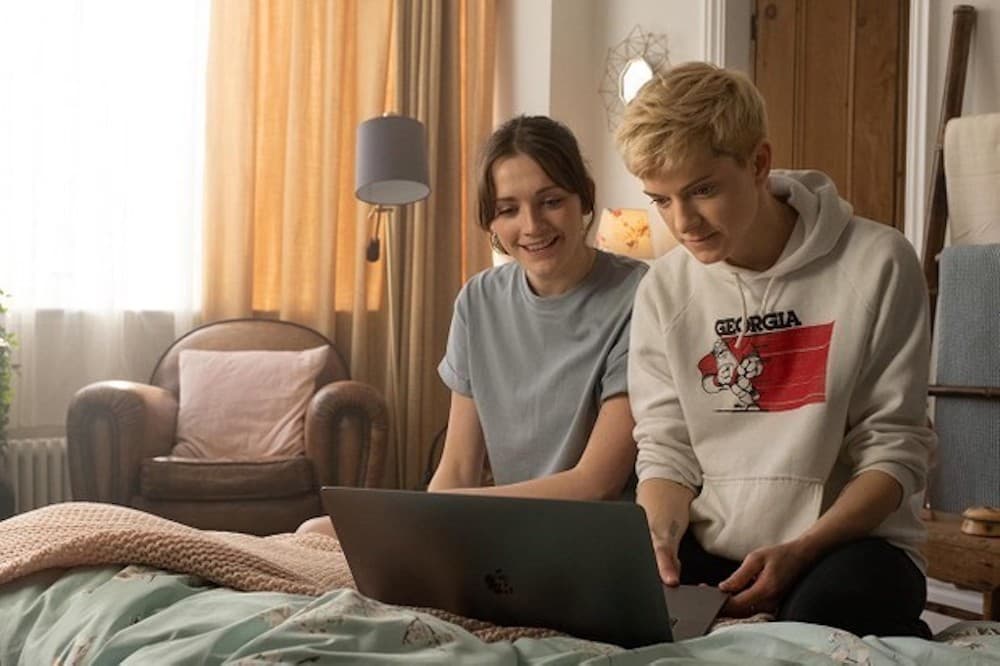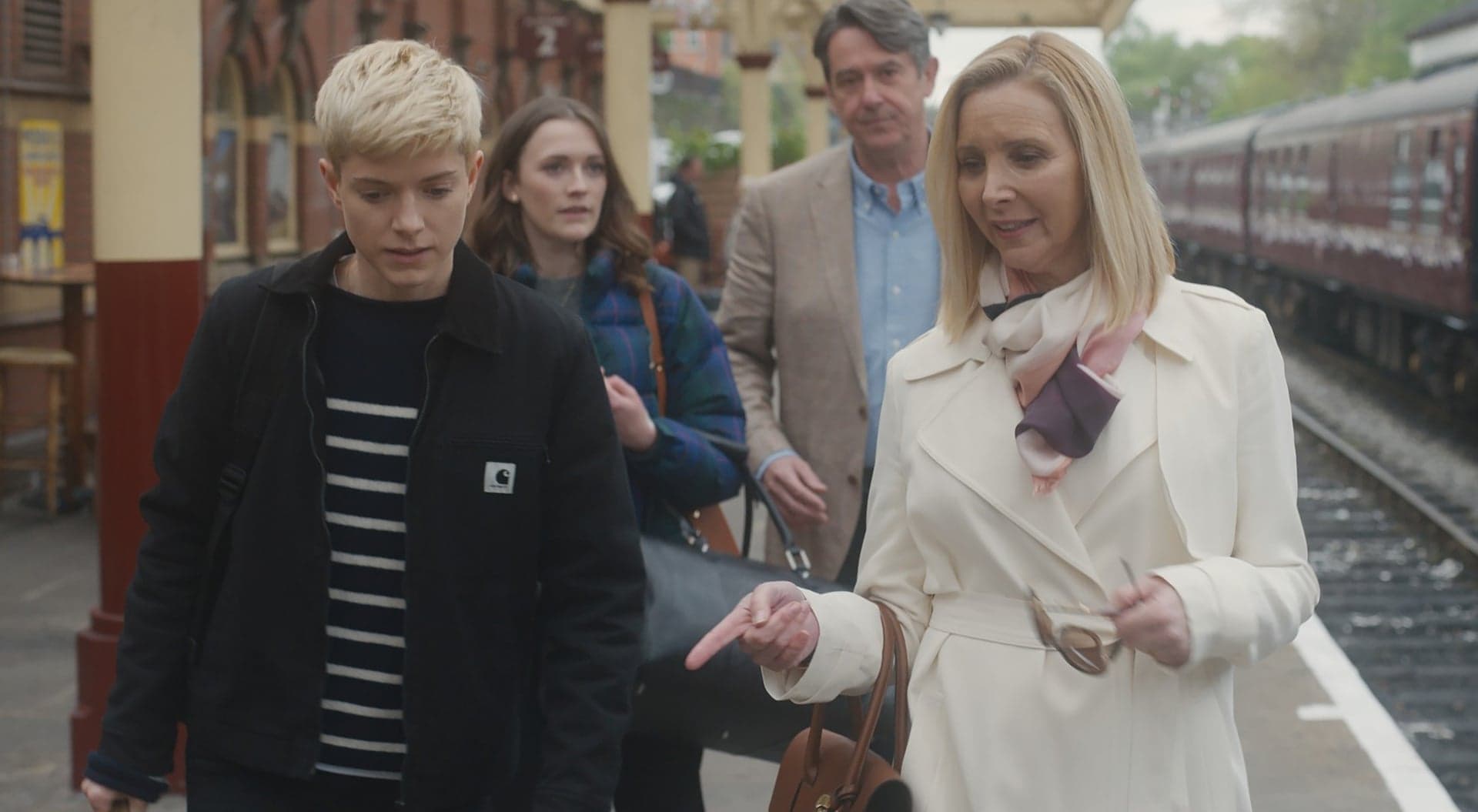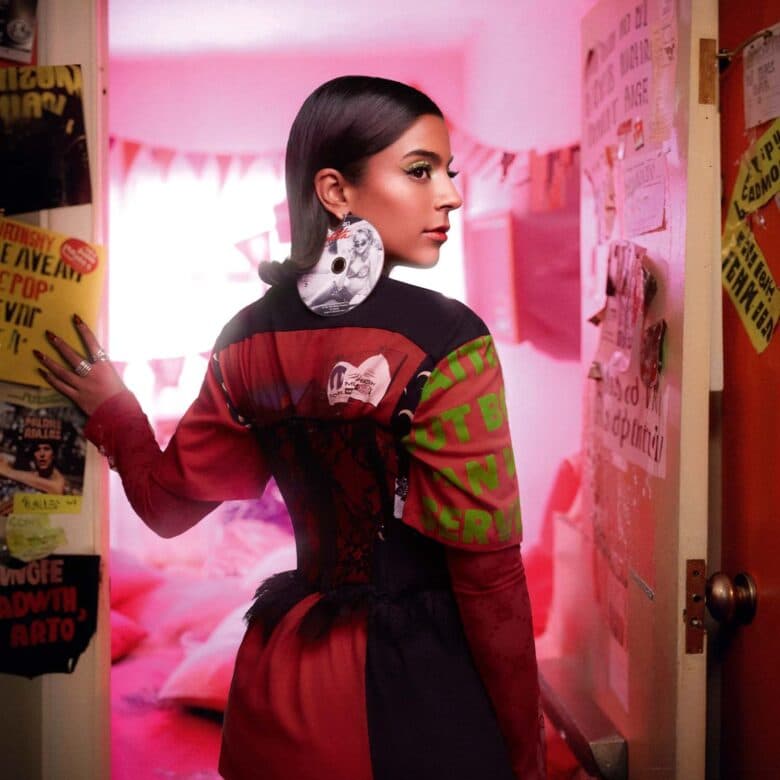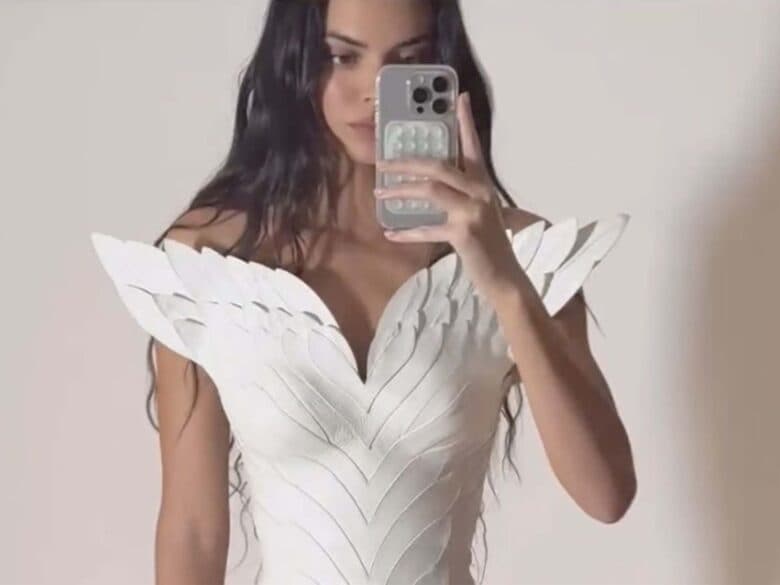Mae Martin’s ‘Feel Good’ will change the way you look at addiction
In recent years, we’ve seen a flourishing of queer and female-led comedy with the likes of Desiree Akhavan’s The Bisexual, Netflix’s Special and, of course, Phoebe Waller-Bridge’s Fleabag. In an attempt to mirror real life these shows introduce us to multifaceted characters whose gender or sexuality isn’t their only defining characteristic, scripted by writers clearly seeking to shatter stereotypes around marginalised identities. Mae Martin’s Feel Good, is the latest addition to this ongoing movement towards more inclusive comedy.
Riffing off of her own experiences with toxic relationships and addiction — as well as the fact she’s clearly a die-hard romantic — she co-wrote the series with close friend Joe Hampson. Playing a fictionalised version of herself, she gives a performance as a comedian who falls in love with formerly heterosexual secondary teacher George (Fresh Meat’s Charlotte Ritchie). Adding depth to the familiar trope of the “lesbian who dates straight girls” by examining both her character’s gender identity struggles and George’s burgeoning queer sexuality, it’s able to humanise a narrative that’s often viewed dismissively by both LGBTQIA+ and mainstream culture. Alongside this tumultuous relationship, one of the show’s primary concerns is drawing a parallel between Mae’s battle with drugs and the highs and lows of toxic love. In this way, Fee Good seeks to humanise addicts; showing that we’re all addicted to one thing or another.
After bingeing Feel Good on All 4, we caught up with writer-comedian Mae to talk about sobriety, shame and why she won’t thank you for any The Bisexual comparisons.
How did you get started in comedy?
Really begin from the beginning? Erm, I was thirteen and I started taking an improv class at The Second City and then I started doing comedy that year. I think I was just obsessed with Ace Ventura and I’ve never really wanted to do anything else but comedy.
Where did the idea for Feel Good come from?
The show is a patchwork of truth and fiction. It came from a stand-up show I did called Dope that was about addiction and relationships. Channel 4 approached me about narrativising it into something scripted. So then I and my best friend Joe [Hampson] who I was already writing with built it around those themes. Have you seen the show by the way?

Yeah, I have, it kind of reminds me of Desiree Akhavan’s show The Bisexual a little bit.
I guess you’re saying it’s similar in terms of representation, which is definitely true. But tonally and content-wise it’s pretty different but we’ve definitely had that comparison. When there’s so little representation you’re bound to get comparisons. It’s an exciting time when there’s queer-authored, queer content out there.
What I felt was that both Feel Good and The Bisexual deal with the really heightened emotional tenor which I would, from my experience, associate with lesbian relationships.
The thing about intensity is interesting because I’ve also experienced that in heterosexual relationships I’ve had. I think a lot of people can relate to that agony and ecstasy of really falling head over heels in that all-consuming way. Certainly, people with addictive behaviours can connect with that.
I think it’s really interesting how the show makes that parallel between addictive love and broader addictive tendencies.
The definition we use in the show is that addictive behaviour can apply to anything that you’re doing compulsively and finding relief in but can’t give up despite knowing the negative consequences. A lot of people can relate to that in terms of even our phones or food or tv. It’s such a ubiquitous and universal feeling. It was important for me to humanise addiction in that way. It’s not just extreme substance abuse and it can permeate all areas of our lives, especially for people who are lacking healthy attachment.
Definitely. Another thing I’d like to talk about is this shame that hangs over the characters in the series.
I think Mae and George are both shame-based characters in many ways not just in terms of sexuality. We’ve seen a lot of stories about homophobia and people misunderstanding sexuality and gender. What I’m interested in as the world moves forward are the lingering, internalised shame and homophobia that are pretty hard to get rid of. I had the most liberal and amazing upbringing but even I had to catch myself feeling inadequate or like a square peg in a round hole.
I think for me, the way that shame was handled in relation to substance abuse was really well done.
Thank you! Those cycles of guilt and shame are what keep you in certain behavioural patterns: you feel guilty and then you do it again, you know. I find with the Twelve Step programme, the idea that if you slip up then you’re back to square one, I find that a little difficult. I’m a big supporter of harm reduction programmes, I was in one when I was a teenager for about nine months and it really turned my life around. It’s a very non-judgemental and practical approach to substance abuse and I think the lack of judgement is the key part, not to say it works for everyone.
So I’m going to pivot to some less intense stuff now…
[Laughs] The content of the show is so personal and the themes are so intense that I end up doing these really deep interviews but I want to make it clear it’s a comedy you know? It’s supposed to bring levity to these topics, it’s really just a love story. Hopefully, people find Feel Good funny but I feel like when they read the interviews they’re like “oh fucking hell, it sounds heavy.”

Has it been a lot of emotional labour doing these interviews?
I didn’t really think through the fact that, because the show is so personal, I’d be fielding really big personal questions that often I don’t have the answers to myself. Stuff about gender identity that I’m still figuring out myself just like my character on the show. It’s okay to not have all the answers, which is a big thing we try to demonstrate in the show. In general in the world right now there’s such a lack of nuance and ambiguity, everything is so binary in one way or the other — in every issue. So we definitely try to show that everything is pretty complex.
Exactly, it’s important to bring that nuance. So on a lighter note, I think Charlotte Ritchie is really perfectly cast as George, how did she come to be in the series?
My co-writer Joe and I both know Charlotte. He went to university with her and I’ve known her since 2012. We started years ago writing a pilot for this show and we asked her to be in it. When she auditioned and neither of us could stop laughing. We wrote the pilot with her in mind so it’s such a dream she could do the series, she’s so funny and so natural. We were able to write a lot of her personality and eccentricities into the part, as well as things we thought would be funny to watch our friend do. It’s such a vulnerable performance and I think that because my character is so all over the place, it brought some balance to have this really steady hand character.
Do you think Mae and George should stay together?
That’s the question, and I’m loving that everybody’s wondering about that and it’s not so clear cut. At the moment they’d have to do a lot of work on themselves to make it a sustainable, healthy thing. But I’m a romantic so I really root for them. I think a lot of people have had relationships that are so electric like that but maybe bad for them. It’s really nice to be able to write a scenario in which those relationships might work out. In real life it’s pretty rare that they do but we all want them to.
Feel Good airs every Wednesday on Channel 4 and is available to watch in full on All 4. Readers in the US can catch it on Netflix.

